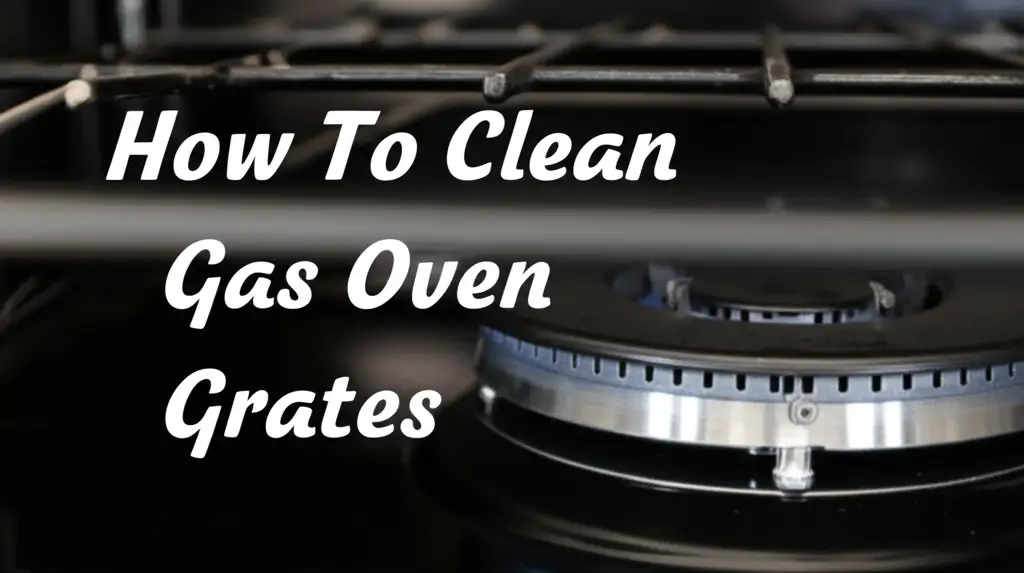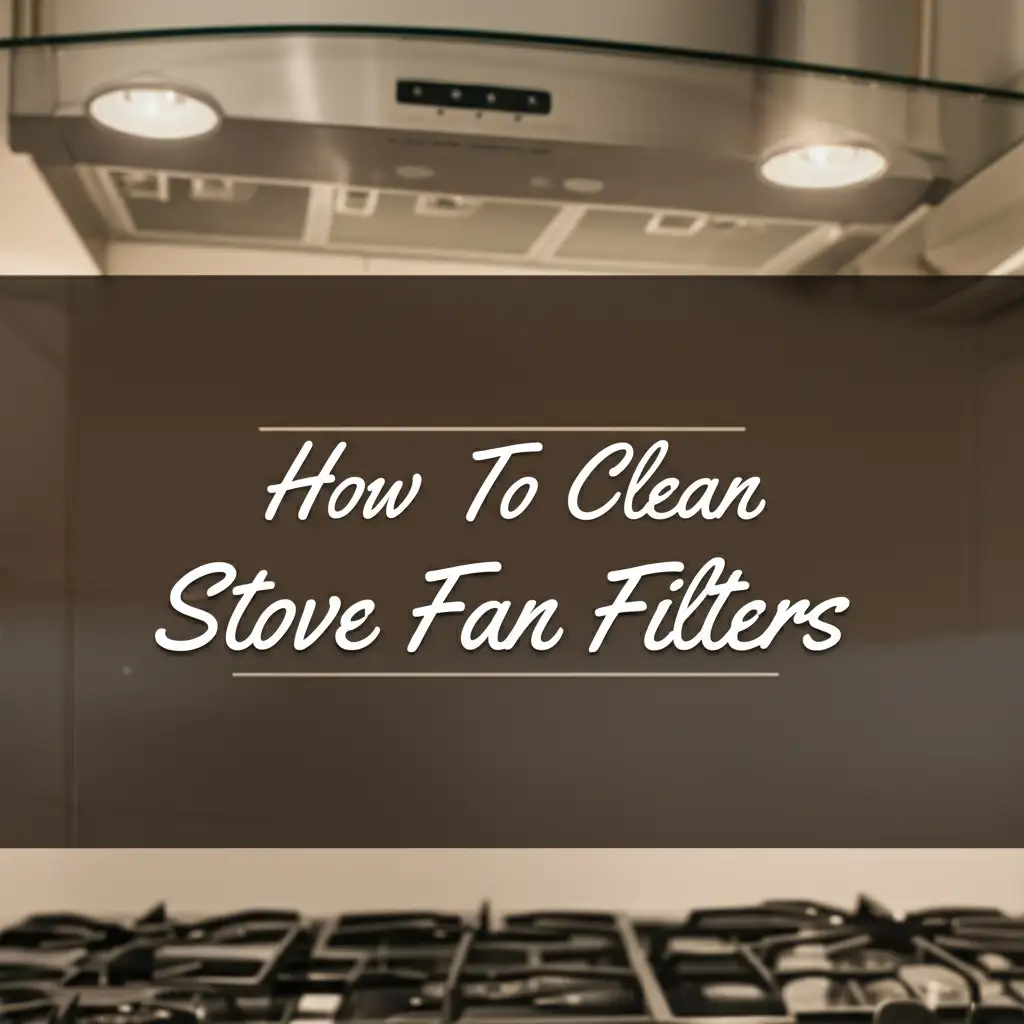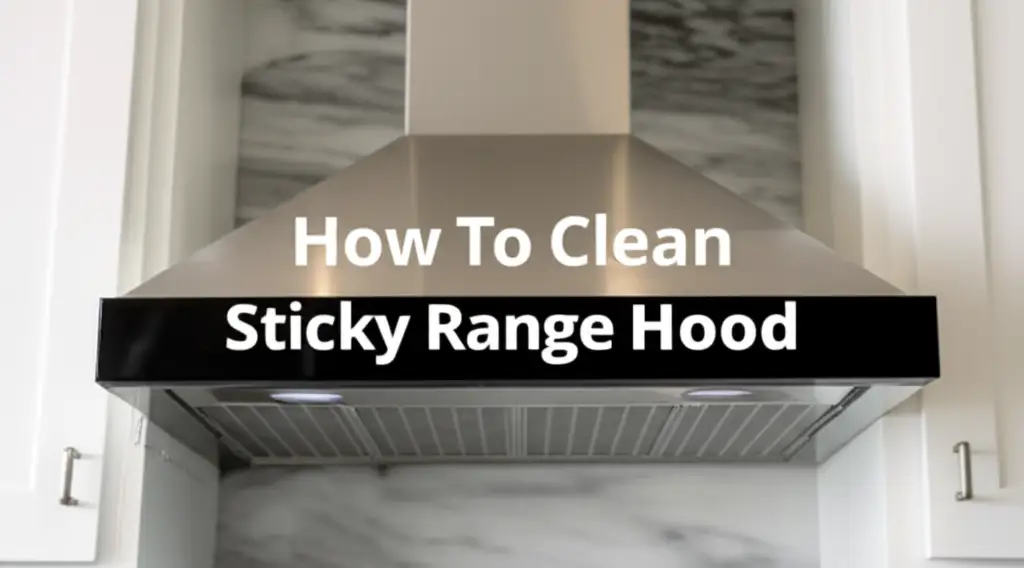· Kitchen Maintenance · 16 min read
How To Clean Gas Oven Grates

Clean Gas Oven Grates: Your Full Guide
Dirty gas oven grates can make your entire kitchen look messy. Food spills and grease build up over time. This affects your oven’s appearance and how well it cooks. Cleaning these grates often feels like a difficult task. But it does not have to be that way.
I know the frustration of burnt-on food on oven grates. It feels impossible to remove. This guide will show you simple ways to get your gas oven grates sparkling clean again. We will cover the best tools and methods. You will learn how to handle even the most stubborn stains. Get ready to bring back the shine to your oven grates.
Takeaway
- Gather all cleaning supplies before starting.
- Choose a cleaning method based on grate material and soil level.
- Always perform a pre-soak for easier grime removal.
- Rinse grates thoroughly after cleaning to remove all residue.
- Dry grates completely before putting them back in the oven.
- Clean up spills promptly to prevent future stubborn buildup.
To clean gas oven grates, first remove them and scrape off loose debris. Soak the grates in hot, soapy water. Use a mixture of baking soda and vinegar or ammonia for tough stains. Scrub the grates, rinse them well, and dry them completely before putting them back.
Why Clean Your Gas Oven Grates?
Maintaining clean gas oven grates offers many benefits. It is not just about making your kitchen look good. Clean grates help your oven work better. They also keep your food tasting its best.
Baked-on food and grease can affect your cooking. These residues can smoke and cause bad smells. This transfers onto your food. A clean oven means cleaner, better-tasting meals.
Dirty grates also pose a fire risk. Accumulated grease can catch fire when exposed to high heat. Regular cleaning reduces this danger. It keeps your home safer. Cleaning extends the life of your gas oven grates. Grime can corrode materials over time. Taking care of your grates saves you money on replacements. It helps your appliance last longer.
Clean oven grates improve your kitchen’s hygiene. They prevent bacteria growth from old food particles. A clean cooking space is a healthy cooking space. You will feel better preparing food in a spotless environment. It brings peace of mind to your home.
Essential Supplies for Cleaning Oven Grates
Before you start cleaning your gas oven grates, gather all your materials. Having everything ready makes the process smoother. You will need some basic household items. These items are effective for breaking down grease and grime.
First, you need protective gear. Wear rubber gloves to protect your hands from harsh cleaners and grime. An old towel or newspapers are useful to protect your workspace. Lay them down before you begin.
Next, get your cleaning agents. Dish soap is essential for basic degreasing. Baking soda and white vinegar are powerful natural cleaners. They create a fizzing action that lifts dirt. For very tough stains, ammonia can be a strong option, but use it with caution. You might also consider a commercial oven cleaner for extreme cases.
Finally, collect your scrubbing tools. A stiff-bristled brush works well for scrubbing. A non-abrasive sponge helps with lighter cleaning. A plastic scraper or old credit card removes large, hardened bits. Have access to a large basin, bathtub, or heavy-duty trash bag for soaking. These items will help you tackle any level of dirt on your gas oven grates.
Preparing Your Grates for Cleaning
Proper preparation makes cleaning gas oven grates much easier. Do not skip this initial step. It helps loosen surface grime before you apply stronger cleaners. This saves you time and effort in the long run.
First, remove all grates from your gas oven. Take them out one by one. Place them on a protected surface, like old newspapers or a large towel. This prevents scratching your floors or countertops.
Next, scrape off any loose food debris. Use a plastic scraper or a stiff brush. Get rid of large crumbs and burnt-on bits. This step helps the cleaning solutions work directly on the stuck-on grime. It prevents spreading loose particles during soaking.
Now, prepare for soaking. You can use a large sink, a utility tub, or even your bathtub. If using a bathtub, place old towels at the bottom to protect the surface. Fill the basin with very hot water and add a generous amount of dish soap. Submerge the grates completely in the soapy water. Let them soak for at least 30 minutes. For heavily soiled grates, a few hours or even overnight is better. This soaking softens the baked-on grease and food. It makes the next cleaning steps much more effective.
Effective Methods to Clean Gas Oven Grates
Cleaning gas oven grates requires different approaches based on the type of dirt. I will share several effective methods. Choose the one that suits your needs. Each method aims to loosen and remove stubborn grease and burnt-on food.
Baking Soda and Vinegar Method
This method uses common household items. It is effective and uses less harsh chemicals. I often use this one for regular cleaning.
- Remove and Scrape: Take the grates out. Scrape off any loose food or char.
- Make a Paste: Mix baking soda with a little water to form a thick paste.
- Apply Paste: Spread this paste generously over all surfaces of the grates. Make sure to cover the really dirty spots. Let it sit for at least 30 minutes, or longer for tough stains.
- Spray with Vinegar: Fill a spray bottle with white vinegar. Spray the vinegar over the baking soda paste. It will foam and fizz. This reaction helps lift the grime.
- Scrub and Rinse: After the fizzing stops, scrub the grates with a stiff brush or an old sponge. The loosened grime will come off. Rinse the grates thoroughly under hot running water. You can find more details about using this method for overall oven cleaning here: how to clean oven with baking soda.
Ammonia Method (Caution Advised)
Ammonia is very powerful for heavy grease. It creates strong fumes, so use it carefully. Always ensure good ventilation when using this method. I recommend doing this outdoors or in a very well-ventilated area.
- Preparation: Place your grates in large, heavy-duty trash bags. Make sure the bags are sturdy.
- Add Ammonia: Pour about 1/2 cup of ammonia into each bag. Do not let the ammonia touch your skin. Seal the bags tightly, trapping the fumes inside.
- Let it Sit: Leave the bags outside overnight. The ammonia fumes will break down the grease.
- Remove and Clean: The next day, open the bags outdoors. Remove the grates. The grime will be loose. Use a brush or sponge to wipe it away. Rinse the grates completely with hot water. Make sure no ammonia residue remains. Learn more about using ammonia for oven racks here: how to clean oven racks with ammonia.
Dishwasher Method
Some gas oven grates are dishwasher safe. This is the easiest method if your grates fit and are compatible. Always check your oven manual first.
- Check Compatibility: Confirm your grates can go into the dishwasher. Not all materials handle it well.
- Load Grates: Place the grates in your dishwasher. Make sure they fit without blocking spray arms.
- Run Cycle: Run a regular or heavy-duty wash cycle. Use your usual dishwasher detergent. For similar items, check out tips on how to clean gas stove grates in a dishwasher: how to clean gas stove grates in dishwasher.
Soaking without a Bathtub
If you do not have a large sink or bathtub, you can still soak your grates. This method uses trash bags. It is very effective for breaking down dirt.
- Get Bags: Use heavy-duty trash bags. Make sure they are tear-resistant.
- Place Grates Inside: Put one or two grates into each bag. Do not overload them.
- Add Solution: Pour hot water and a generous amount of dish soap into the bag. You can also add a cup of white vinegar.
- Seal and Soak: Seal the bag tightly. Let it soak for several hours or overnight. This method is similar to how you might clean oven racks without a bathtub: how to clean oven racks without bathtub.
- Scrub and Rinse: The next day, open the bag. The grime will be soft. Scrub the grates with a brush. Rinse them thoroughly.
Aluminum Foil Method
Aluminum foil can act as an abrasive scrubber. This works well for stubborn spots. It also helps remove baked-on debris.
- Crumple Foil: Take a large piece of aluminum foil. Crumple it into a tight ball.
- Add Soap: Dip the foil ball into soapy water. You can also use a baking soda paste on the grates.
- Scrub: Use the foil ball to scrub the grates. The rough texture helps dislodge burnt-on food. This technique is also useful for other grates: how to clean oven racks with aluminum foil.
- Rinse: Rinse the grates well after scrubbing.
Specific for Cast Iron Gas Oven Grates
Many gas oven grates are made of cast iron. These require special care to prevent rust.
- Avoid Harsh Chemicals: Do not use abrasive cleaners or steel wool on cast iron. These can strip the seasoning.
- Soak: Soak them in hot, soapy water briefly (15-30 minutes). Prolonged soaking causes rust.
- Scrub: Use a stiff nylon brush or a non-abrasive sponge. Scrub off the softened grime.
- Dry Immediately: Dry cast iron grates thoroughly right after rinsing. Use a towel.
- Season: Apply a thin layer of cooking oil (like vegetable or grapeseed oil) to the dry grates. Rub it in with a paper towel. This re-seasons them and prevents rust. For more specific cast iron care, see how to clean cast iron stove grates.
Tackling Tough Grime and Burnt-On Spills
Sometimes, gas oven grates have years of baked-on grime. Standard cleaning methods might not be enough. You need stronger tactics for these very tough spots. These methods focus on breaking down heavily carbonized residue.
First, consider using a specialized oven cleaner. These products often come in a spray foam. They contain strong chemicals that dissolve grease. Follow the product instructions very carefully. Always use these cleaners in a well-ventilated area. Wear heavy-duty gloves and eye protection. Spray the cleaner on the grates. Let it sit for the recommended time, often several hours or overnight. The grime will turn into a soft, jelly-like substance.
For physically removing burnt-on spills, a non-scratch abrasive pad can help. Steel wool is generally too harsh for most grates, especially cast iron. Nylon scouring pads are a better choice. They offer more scrubbing power than a sponge. You can also use a plastic paint scraper or a razor blade tool. Be careful not to scratch the grate surface with metal tools. Angle the blade almost flat against the grate. Gently push it along the surface to lift off hardened deposits.
Another trick for tough spots is to create a very thick paste of baking soda and a little water. Apply this paste directly to the stubborn areas. Let it sit for several hours, or even overnight. The long contact time allows the baking soda to break down the grime. You can then add a spray of vinegar over the paste for a chemical reaction. This makes scrubbing much easier. For particularly heavy oil buildup inside the oven, you can also explore how to clean oil out of oven.
Drying and Reinstalling Your Clean Grates
After you clean your gas oven grates, drying them properly is crucial. This step prevents rust and ensures they are ready for use. Skipping this part can lead to new problems. I always make sure my grates are bone dry.
First, rinse the grates thoroughly under warm running water. Ensure all cleaning solution residue is gone. Any leftover soap or chemical can smoke when the oven heats up. It can also leave streaks or a film on the grates. Rinse them until the water runs clear.
Next, dry the grates completely. Use a clean, dry towel to wipe down each grate. Pay special attention to corners and crevices where water might hide. For metal grates, air drying is an option, but towel drying is faster and prevents water spots. If your grates are cast iron, immediate and thorough drying is even more critical. Cast iron rusts easily when exposed to moisture for too long.
For cast iron grates, add an extra step. Once they are dry, apply a very thin layer of cooking oil. Use a paper towel to rub a small amount of vegetable oil, canola oil, or grapeseed oil onto the entire surface. This re-seasons the cast iron. It creates a protective barrier against rust. This simple step preserves your grates.
Finally, carefully place the clean, dry grates back into your gas oven. Make sure they are seated correctly. You are now ready to use your oven. Enjoy your clean cooking space.
Maintaining Your Gas Oven Grates: Preventative Steps
Cleaning your gas oven grates deeply is important. But consistent maintenance keeps them looking good. Preventative steps save you effort in the long run. I find that quick cleanups make a big difference.
First, wipe up spills as soon as they happen. If food or grease spills onto a grate, clean it immediately. A warm, damp cloth is usually enough for fresh spills. This prevents food from baking onto the surface. It makes future deep cleaning much easier.
Second, perform light cleanups regularly. After a few uses, give your grates a quick wipe-down. Use warm, soapy water. This removes light grease buildup before it hardens. You can do this while the grates are still warm (but not hot!) or cool. This routine habit keeps grime from accumulating.
Third, consider using a splatter screen or foil beneath dishes. When baking or roasting, a screen can catch drips. Aluminum foil placed on the oven rack below your cooking dish can also prevent spills onto the grates. This adds a layer of protection. Just make sure the foil does not block airflow or touch the heating element.
Fourth, season cast iron grates regularly. If your gas oven has cast iron grates, re-season them every few months. After cleaning and drying, apply a thin layer of cooking oil. Bake the grates in a low oven for an hour. This helps maintain their non-stick properties. It also protects them from rust. Regular seasoning is a simple way to preserve cast iron. Consistent care ensures your grates remain easy to clean. They will continue to perform well for many years.
Safety First: Important Precautions
Cleaning gas oven grates involves chemicals and manual effort. It is vital to prioritize safety throughout the process. Ignoring safety steps can lead to injuries or damage. Always protect yourself and your home.
First, ensure proper ventilation. If you use strong cleaning solutions like ammonia or commercial oven cleaners, open windows. Turn on your kitchen fan. Good airflow prevents you from inhaling harmful fumes. Fumes can cause dizziness or respiratory irritation. Never use these products in a closed room.
Second, wear protective gear. Always use rubber gloves to shield your hands. Cleaning solutions can irritate skin. They can also cause chemical burns. For stronger cleaners, wear eye protection, such as safety glasses. This prevents splashes from entering your eyes.
Third, disconnect power to your oven if needed. While cleaning grates, you typically remove them. But if you clean inside the oven as well, unplug the appliance. This removes any risk of electric shock. For gas ovens, turn off the gas supply if you work near the burners. This prevents accidental gas leaks.
Fourth, keep cleaning products away from children and pets. Store all chemicals in their original containers. Keep them in a secure, inaccessible place. Never leave open containers of cleaning solutions unattended. Also, dispose of cleaning rags and water safely. Do not pour strong chemicals down drains without proper dilution.
Fifth, be careful with hot grates. If you clean grates soon after using the oven, ensure they are fully cooled. Hot metal causes severe burns. Always wait for grates to reach room temperature before handling them. Following these safety steps protects you. It also keeps your home safe during the cleaning process.
Frequently Asked Questions
How often should I clean my gas oven grates?
You should clean gas oven grates whenever you see visible spills or grease buildup. For light use, a deep clean every 2-3 months works well. If you cook often, aim for a thorough cleaning once a month. Daily wiping of fresh spills helps reduce deep cleaning frequency.
Can I use a self-cleaning cycle for grates?
No, do not put gas oven grates in the oven during a self-cleaning cycle. The extreme heat can damage their finish. It can also warp them. This applies to most gas oven grates, especially cast iron ones. Always remove them before starting a self-cleaning cycle.
Are all gas oven grates cleaned the same way?
No, cleaning methods vary based on the grate material. Cast iron grates need specific care. They rust easily and require seasoning. Porcelain-coated grates are more durable but can chip. Always identify your grate material first. Then choose the best method.
What if my gas oven grates are rusty?
For rusty gas oven grates, especially cast iron, use fine steel wool with soapy water. Scrub gently to remove the rust. Rinse thoroughly and dry immediately. Then, apply a thin coat of cooking oil. Bake the grates in a low oven to re-season them. This process helps prevent future rust.
Can I put gas oven grates in the dishwasher?
Some gas oven grates are dishwasher safe, but many are not. Check your oven’s user manual first. Cast iron grates should never go in a dishwasher. The harsh detergent and high heat strip seasoning and cause rust. Always confirm compatibility before using the dishwasher. For more details on which grates are safe for the dishwasher, check out how to clean gas stove grates in dishwasher.
Conclusion
Keeping your gas oven grates clean is a simple task with big rewards. A clean oven looks better and works better. It also makes your kitchen a more pleasant place to cook. We have explored several effective methods. From powerful baking soda and vinegar mixtures to careful ammonia treatments, you have options.
Remember to prepare your grates properly. This includes scraping and soaking. Always prioritize safety. Wear gloves and ensure good ventilation. Regular maintenance is your best friend here. Wipe up spills quickly. This prevents stubborn grime from forming.
Now you have the knowledge and tools. Go tackle those dirty gas oven grates. You will be amazed at the difference. Enjoy a spotless oven and a cleaner cooking experience. A little effort now means easier cleanup later. Transform your cooking space today.
- gas oven cleaning
- oven grates
- kitchen cleaning
- deep clean
- oven maintenance
- home cleaning tips




